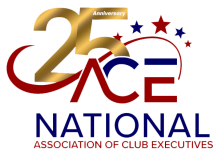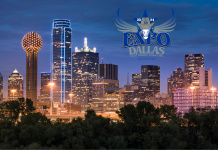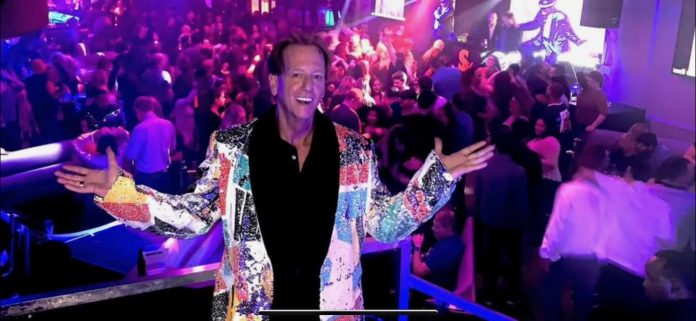Though upscale in its presentation, The Clubhouse was a rock club that boasted its share of pro athletes and musicians who regularly frequented the venue, often to hang out with its celebrity co-owners, Pantera bandmates and brothers Darrell “Dimebag” Abbott and Vinnie Paul. As a co-owner of this and other Dallas venues, Jeff Murtha had a front-row seat to the madness that was The Clubhouse, and here, he details what made this club one of the most “fun” clubs the city has ever harbored.
(NOTE: This story appears in the September 2024 issue of ED Magazine.)
In 1989, a very young owner-operator named Eric Langan was opening one of his first adult clubs in Arlington, Texas, and needed equipment. At the same time, the lease had expired on Manhattans, a nightclub managed by Jeff Murtha. The duo crossed paths after Murtha agreed to help the owner of Manhattans sell its equipment and Langan showed up to make good on the sale.
Murtha even helped Langan install the equipment in the new club, and after working together for a few days, Langan (who, of course, would go on to establish the Rick’s Cabaret club chain) offered him a bar manager position. Initially, Murtha was hesitant, as he’d never been in an adult club. However, after Langan and his partner took him to see some clubs, he accepted the job. Murtha went on to open the legendary Clubhouse in Dallas with members of the metal band Pantera, as well as several other clubs in the area.
ED Magazine Legal Correspondent Larry Kaplan spoke with The Clubhouse co-owner Jeff Murtha about how he ended up in a partnership with members of Pantera and how his club handled the industry’s upscale shift.
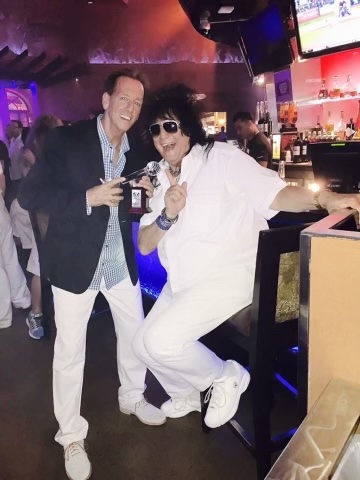
ED: How did your partnership with members of Pantera come about, and what was it like working with them at The Clubhouse?
MURTHA: I ran Manhattan’s before Pantera was signed. Their girlfriends were my bartenders, which is how I got to know the band. [The late Pantera drummer] Vinnie Paul [Abbott] and I often hung out, going fishing and playing golf, and he visited me at Hard Bodies, Eric’s second club, which I managed. I also opened a heavy metal bar called Savvy’s, where they hung out. Even after Pantera became big, I remained best friends with them.
For Savvy’s grand opening on New Year’s Eve, I booked Great White, but three days before, their drummer broke his leg and they canceled. With 1,000 tickets sold, I was panicking. [The late Pantera guitarist] Dimebag and Vinnie saw that I was upset, and offered to fill in. When I said I couldn’t afford them, they offered to play for just a drink tab as “Cowboys From Hell,” with Rex [Brown], Vinnie, Dimebag and King Diamond as their singer. They played covers all night, and the line was out the door with no one asking for refunds. Afterward, Vinnie said, “Now we’re even for all the free beers at Manhattan’s when we were broke.”
A former partner approached me about opening a strip club in Dallas. When I told Vinnie, he wanted in. He came up with the theme, while I chose the name “The Clubhouse.” It was initially going to be a golf-themed club with memorabilia and a golf course nearby. Instead, we featured platinum and gold records and rock treasures.
We were willing to try new things besides just music and girls dancing. We gave the customers other things they could do with the ladies, such as having dinner with a dancer.
– Jeff Murtha
Dimebag, Vinnie and Rex bought into the club. Vinnie and I remained close, recruiting dancers together. He brought every celebrity who came through town to The Clubhouse. I have an autographed motorcycle and photos of celebrities signing it. Vinnie and Dimebag were key in making The Clubhouse popular, as everyone wanted to visit the Pantera club.
Another great story: Dave Grohl and his Foo Fighters bandmate [the late] Taylor Hawkins decided to detour to Vinnie Paul’s club while driving from San Francisco to the East Coast. Dave left his wallet at a gas station, so when they arrived at The Clubhouse, the door guy wouldn’t let them in without ID, despite Dave claiming to be a friend of Vinnie’s. They drove 800 extra miles only to be turned away!
ED: How did the format at The Clubhouse differ from the other well-known Dallas clubs, and how did it help you compete in such a competitive market?
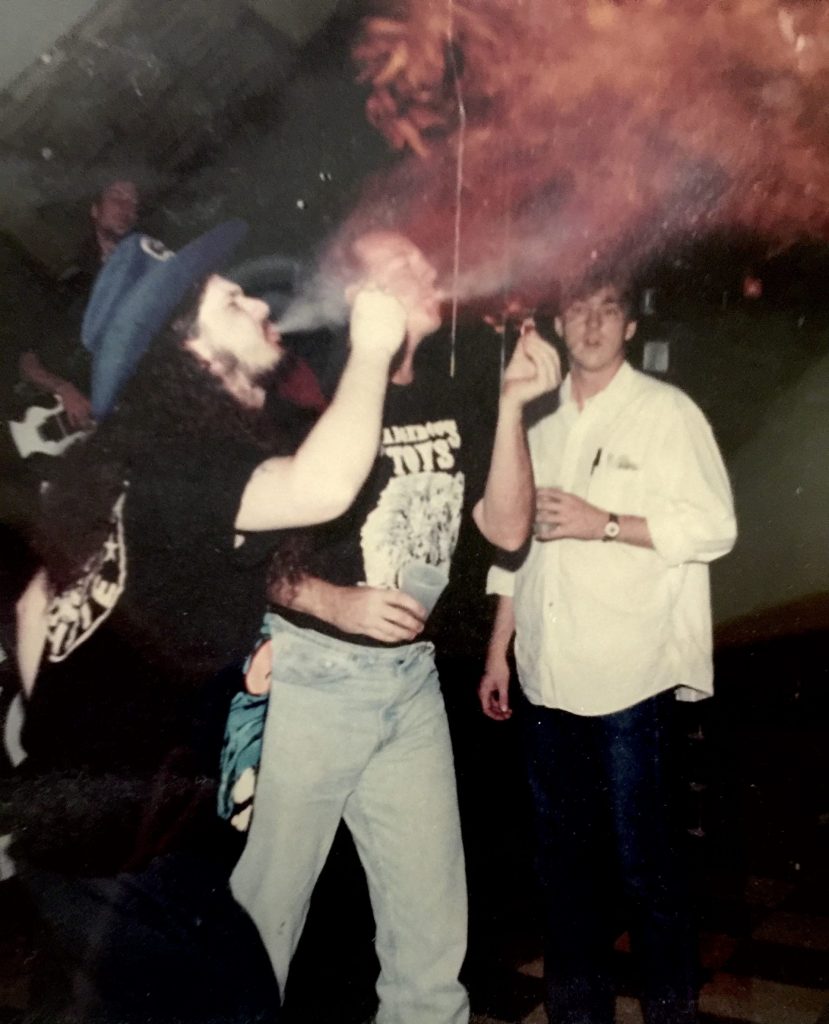
MURTHA: To compete with Baby Dolls, The Men’s Club and Cabaret Royale, I introduced a totally nude format in Dallas, inspired by its success in Arlington. We stood out with a rock and roll theme, avoiding hip-hop or rap. It was an in-your-face, hard-rock party with rock-and-roll strippers, upscale ambiance and interactive elements like sing-alongs and air guitar contests while the girls danced.
We had a stockade that we’d put up for bachelor parties on stage. We’d put the bachelor in the stockade; the girls would rip his underwear off and tie it in his mouth.
My partner at The Clubhouse was John Berkman, the majority owner and my mentor. We called him “the pillar” because he was crucial, handling all of the administrative tasks and finances while I managed the club. John passed away over 10 years ago.
ED: When did you start to see an evolution in the Dallas Metroplex adult clubs from the old roadhouse-type strip clubs to more upscale environments?
MURTHA: In the late ‘80s and early ‘90s. The Million Dollar Saloon was Dallas’ first upscale club, followed by Cabaret Royale, the first mega strip club. Then came The Men’s Club with a pool and The Lodge, which Dawn Rizos did an amazing job with. Duncan Burch, the “godfather” of Dallas’ industry, revolutionized it with Baby Dolls and his other clubs. With several upscale clubs competing, The Clubhouse stood out as the only totally nude club in Dallas at the time.
ED: When did you open The Clubhouse?
MURTHA: December 5, 1995. I designed it on a yellow pad on Dr. Rock’s living room floor and built it with my own hands. With a helper, I did all the woodwork and the sheetrock. Before we opened The Clubhouse, Frank Casperson was the one who made nude clubs a success at Legends and paved the way for The Clubhouse. I just took the baton from him.
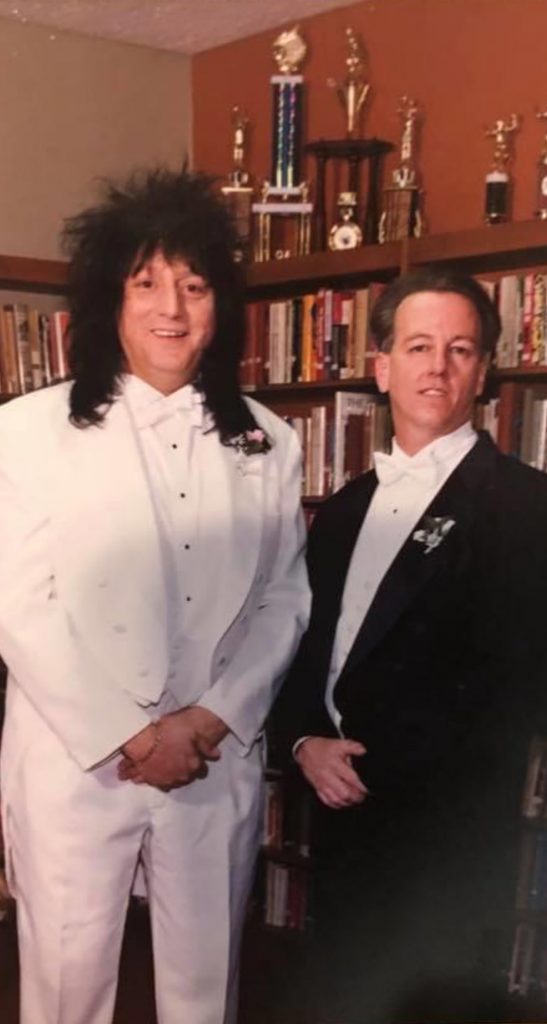
ED: What specifically defined the Dallas Metroplex club market in the ‘90s and early 2000s? What made it unique from other club markets?
MURTHA: Management. We had amazing managers at all these clubs, and I believe they were all visionaries. But probably the top upscale club manager then was The Men’s Club’s Brian Paul, who was very innovative. He created even more upscale restaurants, fine wines and cigar bars with humidors.
We were willing to try new things besides just music and girls dancing. We gave the customers other things they could do with the ladies, such as having dinner with a dancer. The VIP lounge concept started then. I think Cabaret had one upstairs, but The Men’s Club built a VIP lounge everyone wanted to be part of.
Back then, businesses had expense accounts, and big corporations in Dallas would entertain clients at upscale clubs, where major deals were made. The clientele was wealthy businessmen, so money flowed freely. After 9/11, expense accounts were cut, and when it became known that deals were made in strip clubs, companies stopped the practice.
At these upscale clubs, girls dressed in lovely gowns which made men pay more. If they’re just in little bikinis, you can see what you’re getting; there’s no curiosity. Dawn Rizos at The Lodge was very good at making it very classy. The girls would come to the table and greet customers politely rather than immediately asking for dances. At The Clubhouse, we followed a similar approach; girls would introduce themselves and chat with customers before mentioning dances.
ED: How did you get your start in the bar business?
MURTHA: I’m from Long Island, New York. I worked at the original Studio 54, which is where our nightclub, Studio 80, got its name. And where I learned to do entertainment. I even had stand-up comics at The Clubhouse. Sometimes it bombed, but I tried it. And that’s when I realized you had to entertain people, and it had to be different.
Customers would ask, “How come you’re not showing the game on TV like every other club?” I’d respond, “Then I’d be just like every other club.” I wanted them to pay attention to the dancers, not look at ESPN reruns at one or two in the morning. My job as the owner is to make the club as much money as possible, but also to make sure every worker, from the barback to the dancers, makes money. That’s how I run all my places.
ED: In 2000, ED Publications named the Dallas Metroplex the number one adult nightclub market in the US. If it was, what do you think made it number one?
MURTHA: The class; the class of the entertainers, fine wines, fine champagne, the class of the owners, the class of the club. Everything we did was just totally first-class, from the buildings to the valet parking. I’ve gone to clubs in Atlanta, and all around; they didn’t have the class that we put into it.
Larry Kaplan has been the legal correspondent for ED Magazine for 24 years. Mr. Kaplan is a broker in the sales and purchase of adult nightclubs and adult retail stores and the Executive Director of the ACE of Michigan adult nightclub state trade association. Contact Larry Kaplan at 313-815-3311 or larry@kaplanclubsales.com.


